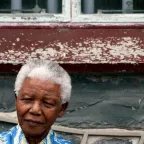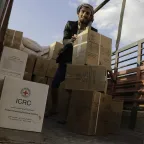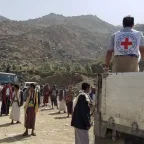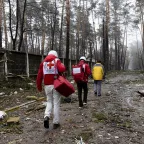Mandela Day: Improving the lives of detainees
Nelson Mandela, the anti-apartheid leader who became South Africa's first black President, is commemorated every year on 18 July, his birthday, also known as Nelson Mandela International Day. Mr …
Nelson Mandela, the anti-apartheid leader who became South Africa's first black President, is commemorated every year on 18 July, his birthday, also known as Nelson Mandela International Day. Mr …

In Yemen, the ICRC delivers emergency assistance in the realms of health care, economic security and water and sanitation. We support hospitals, primary health care clinics and physical …

… with stories of people who lost their jobs or were socially excluded. The situations …
The new report, Civil legal issues related to the families of the missing in Nepal , commissioned by the ICRC, highlights the legal and administrative issues faced by the families of the missing. The …
… those occupying temporary or precarious jobs or relying on daily wages to subsist also …

… as teachers and health workers who do their jobs in the midst of hostilities. We call on …

Armed conflict and other situations of widespread violence generate immediate and additional health-care requirements for wounded and sick people. These requirements increase at the very time when …
… dignity are respected. It includes access to jobs and income-generating activities, often …
… psychological consequences of their stressful jobs. Government workers learnt about … businesses or were assisted in looking for jobs. During post-distribution interviews, … worked towards self-sufficiency by securing jobs or by starting or strengthening small …

The ICRC acts as the guardian of international humanitarian law, a complex role that is closely connected with its own foundation and was later formally entrusted to it by the international …
Try one of the following resources:
Created in 1863, the ICRC library, alongside the ICRC archives, provides an indispensable documentary reference on the organization itself and international humanitarian law.
International humanitarian law is based on a number of treaties, in particular the Geneva Conventions of 1949 and their Additional Protocols, and a series of other instruments.
Customary international humanitarian law consists of rules that come from "a general practice accepted as law" and that exist independent of treaty law.